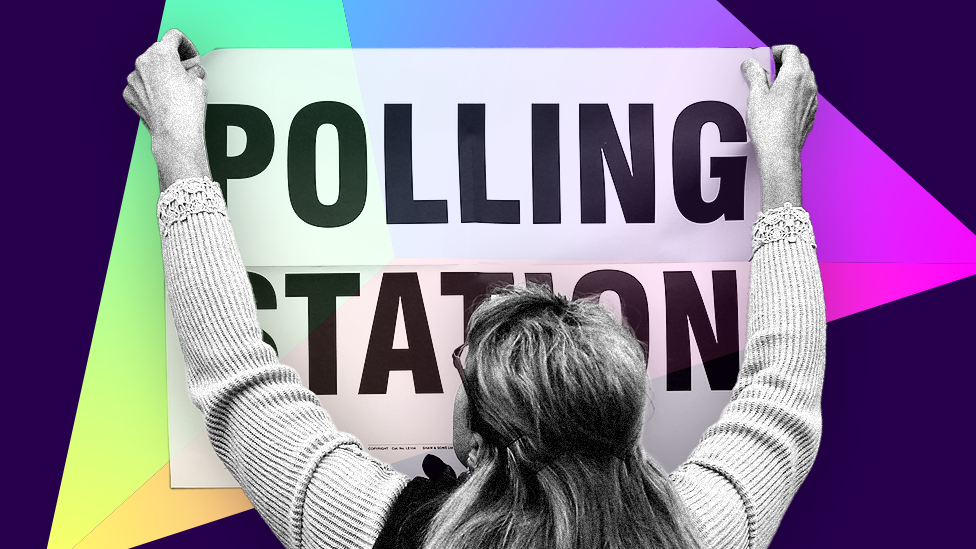Voters guided by Gaza concerns ahead of election
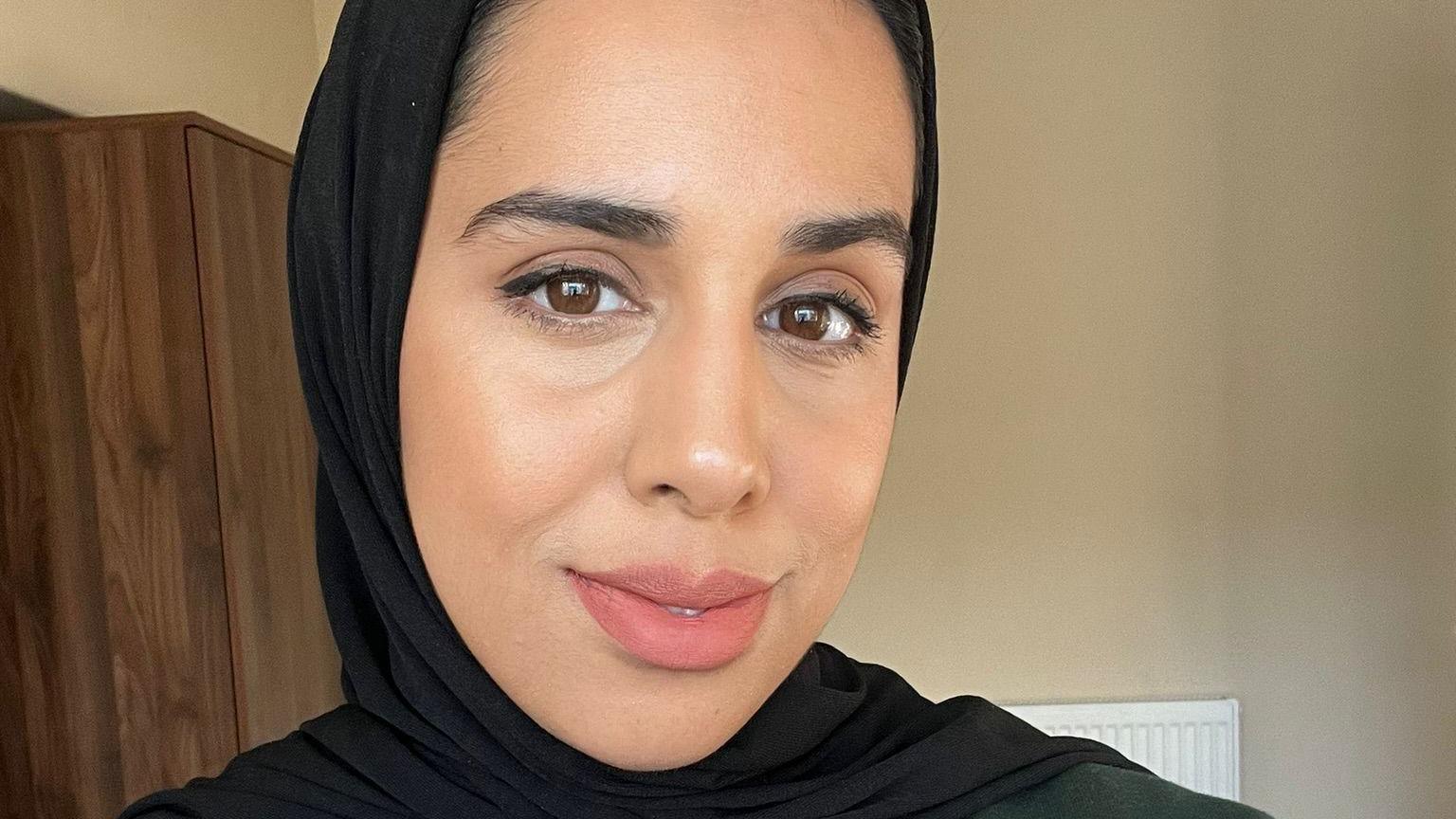
Naima Adam says she will be focussed on Gaza at the ballot box, adding: "Ultimately what else have we got."
- Published
The conflict in Gaza stands to be a key factor in how some people in Lancashire will vote at the general election.
People in some parts of Preston told BBC North West Tonight they wanted politicians to take a stronger stance on the conflict.
This could lead to Ronnie Clarke, a former youth worker and previous Labour voter, shifting his traditional allegiances.
He said he had grown "uncomfortable" with the main party leaders' position on on the Israel-Gaza war.
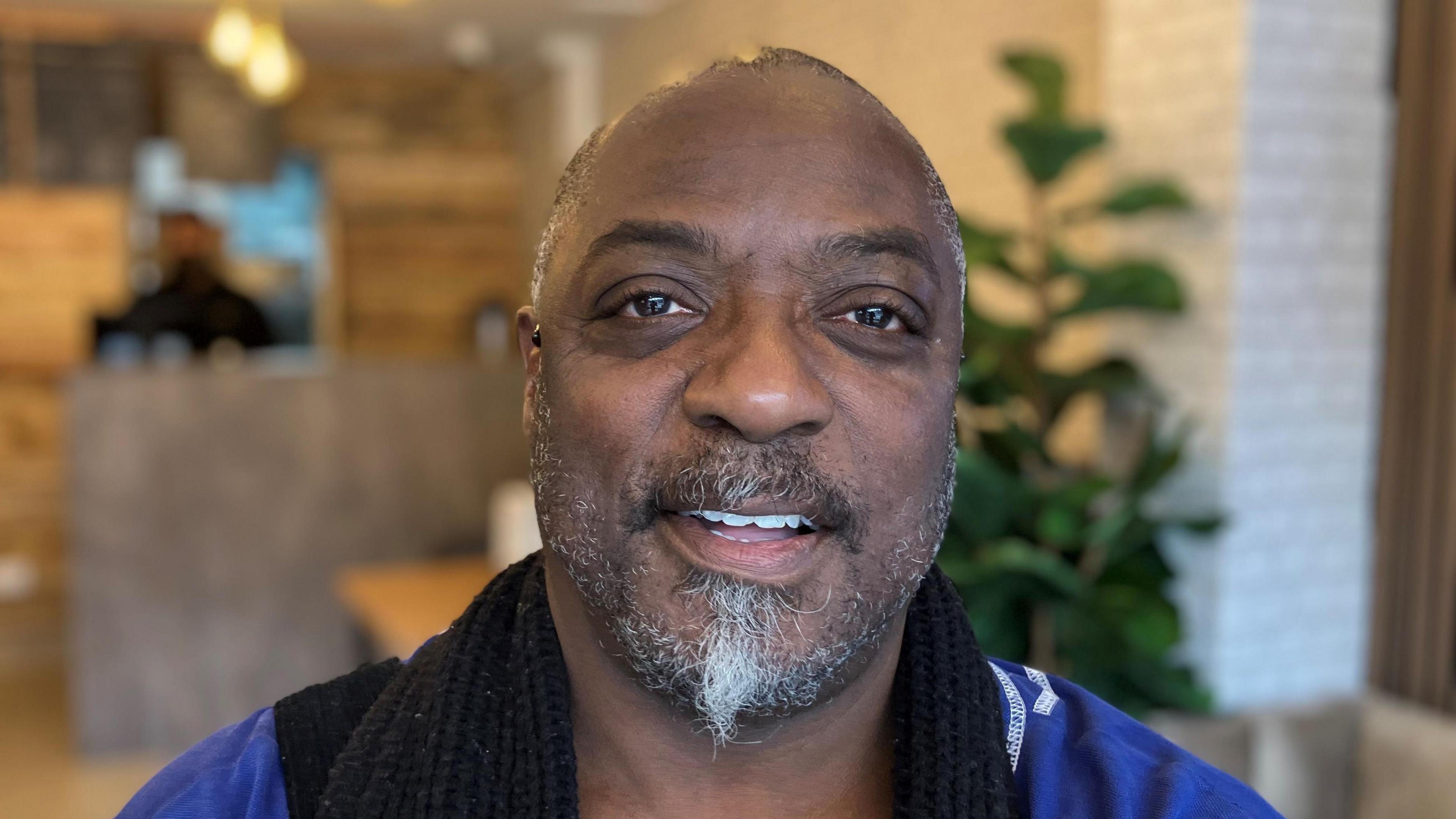
Ronnie Clarke said he feels "in a quandary" about who to back at the general election
Mr Clarke, who said he spoiled his ballot during the last local elections in frustration, said his "heart leans left", but he no longer felt his views were represented.
Israel and the Palestinian group Hamas have been at war since early October after Hamas fighters launched an unprecedented attack on Israel and a military campaign followed, killing thousands in the Palestinian territory.
Conservative Prime Minister Rishi Sunak has repeatedly called for "a humanitarian pause" to allow aid to get into Gaza, and backed a "long-term sustainable ceasefire".
Labour's Sir Keir Starmer has also called for "a ceasefire that lasts", and supported the government's stance of calling for Israel to pause its action.
Both have also called for Hamas to release hostages taken during the 7 October attacks.
But after he refused to push for an immediate ceasefire last year, Labour councillors in Pendle and Burnley called on him to resign, with ten councillors quitting the party in protest.
Pro-Palestinian campaigner Naima Adam, and first time voter Jawaharah Bodi also spoke to the BBC while they visited the Chai Stop cafe on St Paul's Rd in the Deepdale area of Preston.
Ms Bodi said the upcoming election was "the most important election of our lifetime”.
For her, issues like the cost of living, housing and employment were tied in with the plight of civilians in Gaza.
“Foreign policy and domestic policy are both connected," she said.
"We can’t advocate for, for example, women’s rights if we’re not looking at the women in Gaza who are losing their children every single day.”
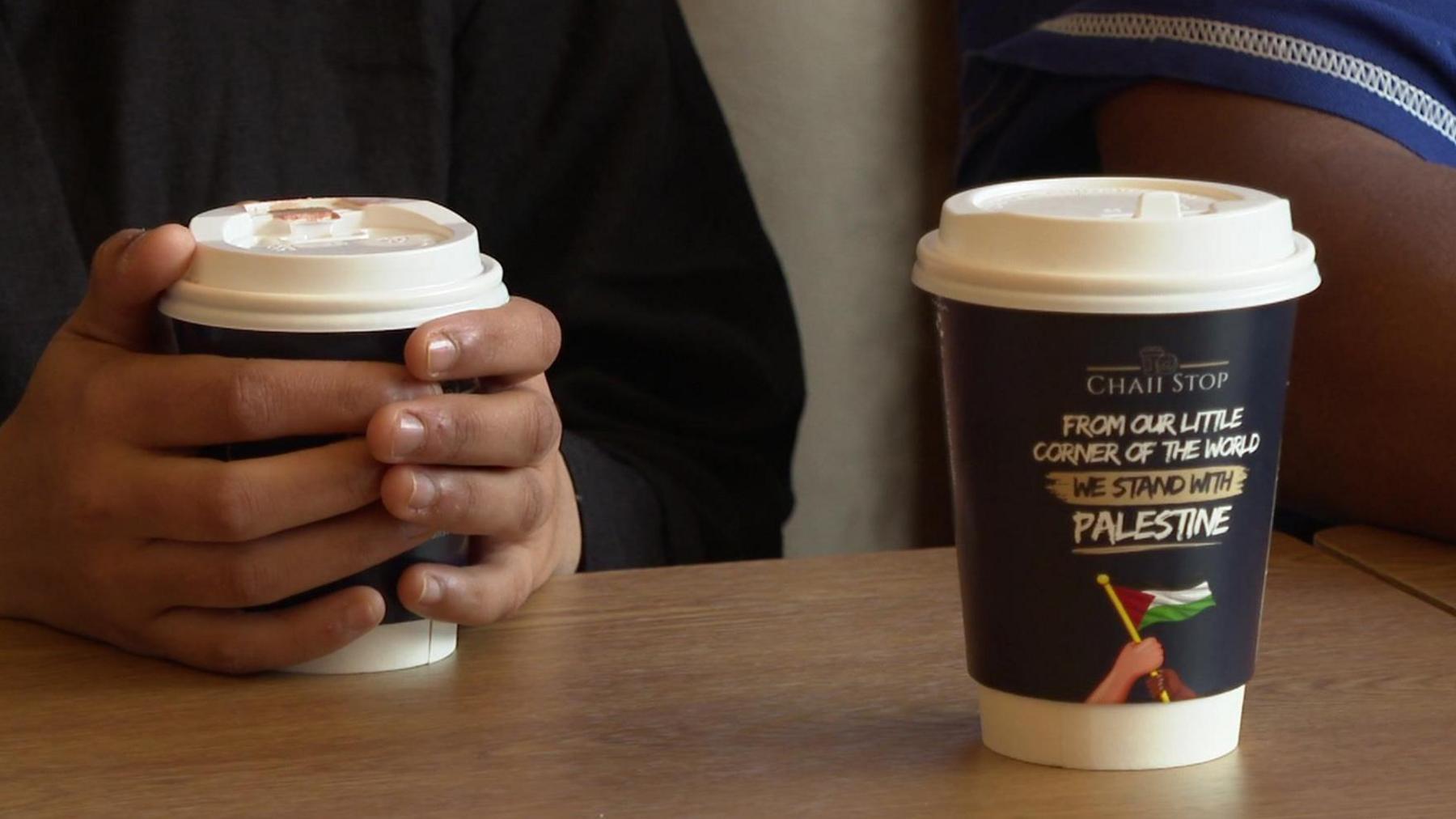
Some voters in Preston say what is happening in Gaza will influence how they vote
Ms Adam is a campaigner and a trainee therapist who has organised pro-Palestinian marches.
She said she had "been taught to vote Labour" her entire life, but she had begun to feel unsure over the situation in Gaza.
“We’ve kind of had a shift in that belief and narrative, because ultimately you know we want the people in power to be compelled to do something," she said.
Zain Ishrat, who runs the Chai Stop, said pro-Palestinian marches in the north-west of England had shown "that together we are strong".
But Paula Keaveney, a senior politics lecturer at Edge Hill University said Gaza was unlikely to be the "one significant factor" behind voting decisions in the area.
“For a general election, there are so many other things in the mix, although I think this will affect people’s thinking."
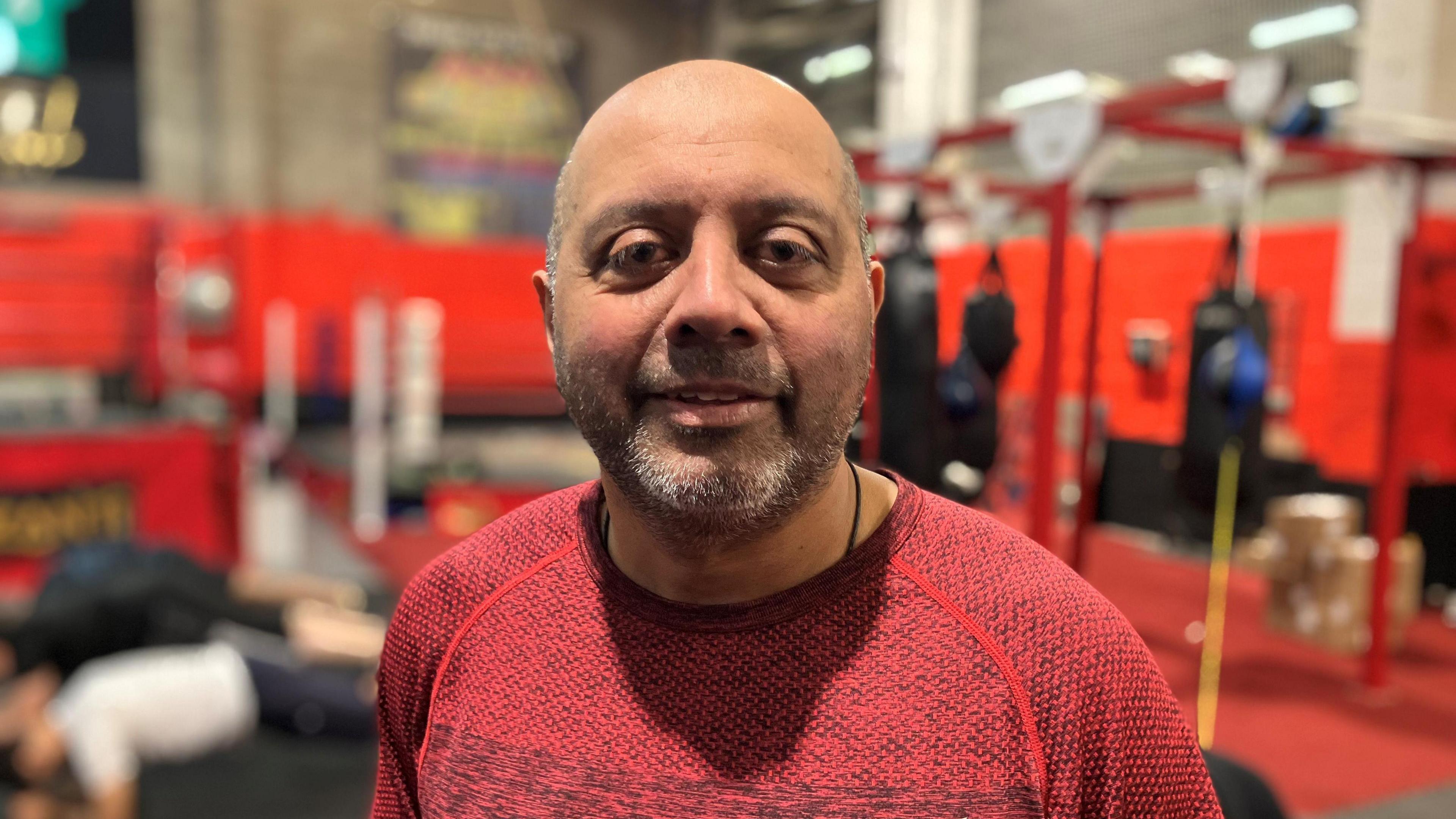
Mustaq Patel said the suffering in Gaza is stuck in his mind
Across town at a community hub, business owner Mustaq Patel said he would be changing his vote because of what was happening in Gaza but he said he would also be thinking about other issues.
“Obviously it shouldn't just be on the one issue, cost of living, services to the community, everything’s gone downhill," he said.
But he said the situation in Gaza had a major influence on him, adding "when you see the news, obviously that affects you".
For Naima Adam though, her decision was clear.
She said she would be using her vote at the ballot box to back the party which aligned with her views on what was happening in Gaza.
“I wouldn’t call it a protest vote, [but] ultimately what else have we got."
Listen to the best of BBC Radio Lancashire on Sounds and follow BBC Lancashire on Facebook, external, X, external and Instagram, external. You can also send story ideas to northwest.newsonline@bbc.co.uk, external
Related topics
- Published4 July 2024
